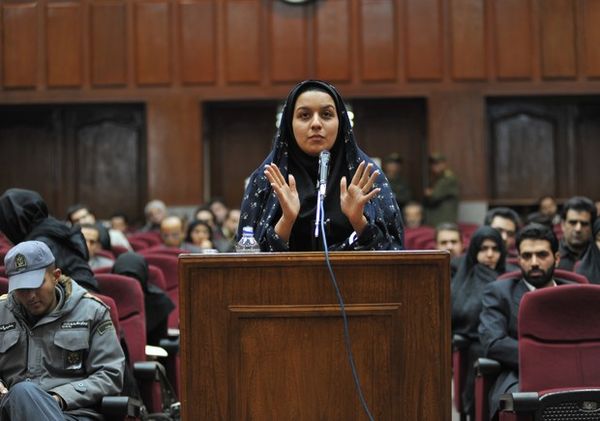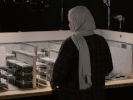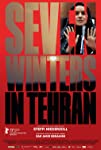Eye For Film >> Movies >> Seven Winters In Tehran (2023) Film Review
Seven Winters In Tehran
Reviewed by: Amber Wilkinson

In recent years there have been several high-profile cases of nationals with dual Iranian citizenship being unjustly detained in Iran, including until their release in 2022, Nazanin Zaghari-Ratcliffe and Anoosheh Ashoori. There has also been renewed international interest in the country since the death of Mahsa Amini in police custody last year after her arrest for allegedly breaking hijab rules.
This sombre and thorough film from German director Steffi Niederzoll examines a single earlier case which indicates the ingrained nature of the way the patriarchal Iranian courts are rife with corruption and, particulary, stacked against women.

Iranian Reyhaneh Jabbari was just 19 when she fell foul of her country’s judicial system after she stabbed a man who was attempting to rape her, resulting in his death. The years leading up to her death sentence are recounted by this film. "I want to tell everyone my story," she says, and Reyhaneh is able to do just that thanks to recorded telephone conversations from prison and letters read in voice-over by Holy Spider star Zar Amir-Ebrahimi, who herself fled Iran in 2006 after the leak of a private video. In addition, there are also extensive interviews with Reyhaneh’s family and others who campaigned tirelessly for her release as well as some footage that came with the double risk of having to be secretly shot and smuggled out of the country.
Niederzoll - making her debut here - takes a chronological approach, as we hear how Reyhaneh came to be in a compromising position with older man Morteza Sarbandi, lured under false pretences to a flat by what she thought was a job opportunity. After her arrest it gradually became apparent that there was a lot more to the married Sarbandi than first met the eye and that he was connected in ways that would have a huge impact on what happened to Reyhaneh at trial. In order to break up the almost unavoidable interview-driven nature of the film, which is a lasting testament to the love and commitment of Reyhaneh’s family to both her and her memory, Niederzoll also uses miniature replicas of the courthouse and prisons where Reyhaneh was held.
These models, created in forensic detail by Gali Blay, Nadja Safvat have a bleak stillness as the camera pans over them, which adds to the grim inevitability of the story being relayed. As the years continue, we see how every step of the process is dogged by corruption, from coerced confession to biased headlines and judicial interference - right down to a judge telling Reyhaneh, “You should have let yourself be raped and filed a report later”.
Despite the tough nature of the subject matter, Niederzoll - whose film plays at the Human Rights Watch Film Festival this month - also offers some seeds of hope. The film highlights activism, both from Reyhaneh, who helped other women within the jail to find the courage to speak out against their incarceration, and her mother Shole, who has gone on to help many others fight their death sentences. Throughout it all Reyhaneh’s stoicism in the face of her sentence shines out and there is also some thought spared for the family of Sarbandi. Rather than portray his son Jalal as the bad guy in all this by his refusal to forgive Reyhaneh and thereby save her from hanging by blood revenge, it shows, through Shole’s empathy for him, how he is also caught in the wheels of a judicial mechanism that grinds everyone beneath it regardless of innocence or guilt.
Reviewed on: 17 Mar 2023















